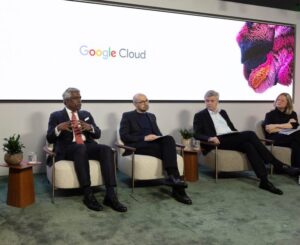DeepMind UK Employees Aim to Form a Union and Address Defense Contracts and Connections to Israel

DeepMind Staff Movements: Unionization Efforts and Concerns Over Defense Contracts
Background on DeepMind
DeepMind, a British artificial intelligence company and a subsidiary of Alphabet Inc., has become a leader in AI research and technology. Established in 2010, the organization focuses on developing algorithms and neural networks that can tackle complex problems. Its advancements have contributed to various fields, including healthcare, gaming, and climate modeling.
Unionization Efforts
Recently, employees at DeepMind in the UK have initiated a movement to form a union. This development mirrors a growing trend among tech workers who are increasingly advocating for better working conditions, transparency, and equitable treatment. Through this unionization effort, DeepMind staff aim to secure their rights and influence decision-making processes within the company.
Reasons for Unionization
Several factors have prompted DeepMind employees to consider unionization:
- Job Security: Employees are seeking enhanced job security in an industry that can be subject to rapid changes and layoffs.
- Workplace Conditions: Concerns over workplace conditions, including workload and mental health support, are significant motivators for staff.
- Advocacy for Responsible AI Use: With the ethical implications of AI being widely discussed, employees want a say in how their work is utilized, especially regarding defense-related projects.
Concerns Over Defense Contracts
A significant point of contention has arisen around DeepMind’s involvement in defense projects. Employees have expressed unease about the ethical implications of working with military organizations and defense contractors. These concerns have fueled the desire for a union, as staff want a platform to voice their opinions on such sensitive matters.
Key Issues Regarding Defense Links
- Ethical Dilemmas: There is growing anxiety about how AI technologies are being leveraged in military contexts, raising questions about accountability and moral responsibility.
- Public Perception: Collaborating with defense organizations can affect the public image of a company known for its positive contributions to society, such as healthcare advancements.
- Employee Autonomy: Many employees seek to have a say in the contracts their company takes on, advocating for transparency regarding partnerships and projects.
Broader Implications for the Tech Industry
The unionization efforts at DeepMind reflect a broader trend across the tech industry. Many technology companies are faced with similar challenges, as employees become more vocal about their rights and ethical concerns. There are several important factors at play within this movement:
Increasing Worker Power
Workers in the tech industry are becoming more empowered, utilizing collective bargaining to negotiate their conditions and roles within organizations. This trend emphasizes the importance of worker solidarity, especially in a rapidly evolving field.
Shifting Company Cultures
As tech firms respond to employee demands, company cultures are beginning to shift. Many organizations are now incorporating more democratic governance structures that allow for employee participation in key decisions. This shift aims to create a more inclusive workplace where everyone feels valued.
Conclusion
While DeepMind’s staff seeks to unionize and address concerns over defense contracts, their actions highlight a pivotal movement within the tech industry. As these discussions evolve, the outcomes may shape the future of workplace practices and ethical considerations surrounding AI technology across various sectors.






